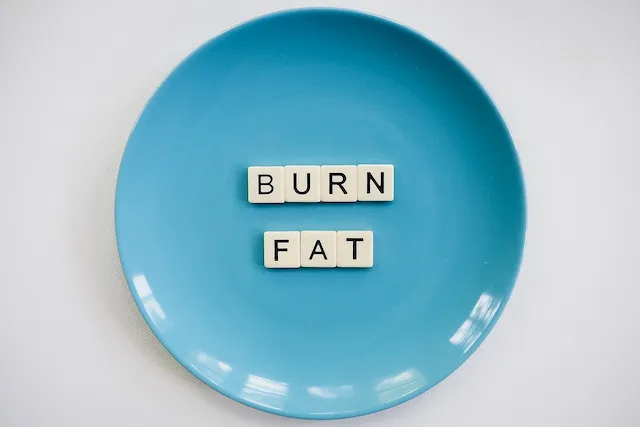Reduce Body Fat for Weight Loss – Tips and Tricks
You need to know how to reduce body fat because we all know that maintaining a healthy body weight is important for our overall health and well-being. Body fat not only affects our physical appearance but also has a significant impact on our health.
In this article, we will discuss effective tips and tricks for reducing body fat for weight loss. We will cover everything from understanding body fat, the causes of excess body fat, and the risks associated with it, to healthy foods for weight loss, supplements, and other methods. We will also provide you with practical advice on how to maintain a healthy lifestyle and achieve sustainable weight loss.
Understanding Body Fat
Body fat is a necessary component of our body, providing insulation, cushioning, and energy storage. However, too much body fat can be detrimental to our health. The two types of body fat are subcutaneous and visceral. Subcutaneous fat is the fat that sits just beneath the skin, while visceral fat is the fat that surrounds our organs.
Maintaining a healthy body fat percentage is important for overall health. A healthy body fat percentage for men is between 6% and 24%, and for women, it is between 16% and 30%. Excess body fat is associated with an increased risk of heart disease, stroke, diabetes, and even cancer.
Causes of Excess Body Fat
There are several causes of excess body fat. Unhealthy eating habits and a sedentary lifestyle are the primary causes. Consuming more calories than your body burns results in weight gain, which can lead to an increase in body fat. Hormonal imbalances and genetics can also play a role in excess body fat.
Risks of Excess Body Fat
Excess body fat can have several adverse effects on our health. It is associated with an increased risk of heart disease, stroke, diabetes, and certain types of cancer. It can also affect our self-esteem and confidence, leading to mental health issues such as depression and anxiety. You want healthy life? Reduce body fat if you have excess body fat.
Tips for Reducing Body Fat
Reducing body fat is not an easy task, but with the right strategies, it can be achieved. Here are some tips for reducing body fat for weight loss:
- Eat a balanced diet with a calorie deficit: A balanced diet with a calorie deficit is crucial for weight loss. It is important to consume fewer calories than your body burns to achieve a calorie deficit. Eating a diet rich in whole grains, lean proteins, fruits, and vegetables, and healthy fats can help you achieve this.
- Incorporate strength training into your exercise routine: Strength training is an effective way to build muscle, which can increase your metabolism and help you burn more calories.
- Increase cardio workouts: Cardio workouts are essential for burning calories and reducing body fat. High-intensity interval training (HIIT) is a great way to maximize calorie burn in a short amount of time.
- Reduce stress levels: Stress can lead to weight gain and an increase in body fat. Finding ways to reduce stress, such as meditation, yoga, or spending time in nature, can help you manage your weight.
- Get enough sleep: Lack of sleep can disrupt hormones that regulate appetite and metabolism, leading to weight gain and an increase in body fat. Aim for 7-8 hours of sleep per night to help regulate these hormones.
- Drink plenty of water: Drinking plenty of water can help you feel full and prevent overeating. Aim for at least eight glasses of water per day.
Healthy Foods for Weight Loss
Eating a balanced diet rich in healthy foods is essential for weight loss. Here are some healthy foods to incorporate into your diet:
- Whole grains: Whole grains are an excellent source of fiber and nutrients. They can help you feel full and satisfied, preventing overeating. Examples include whole-wheat bread, brown rice, and quinoa.
- Lean proteins: Lean proteins are low in calories and high in nutrients. They can help you build muscle and increase metabolism. Examples include chicken, fish, and tofu.
- Fruits and vegetables: Fruits and vegetables are low in calories and high in fiber and nutrients. They can help you feel full and satisfied while providing your body with essential vitamins and minerals. Examples include apples, spinach, and carrots.
- Healthy fats: Healthy fats can help you feel full and satisfied and are essential for overall health. Examples include avocado, nuts, and olive oil.
Foods to Avoid for Weight Loss
Avoiding certain foods can be just as important as incorporating healthy foods into your diet. Here are some foods to help reduce body fat:
- Processed and packaged foods: Processed and packaged foods are often high in calories, sugar, and unhealthy fats. They can contribute to weight gain and an increase in body fat. Examples include chips, cookies, and processed meats.
- High sugar and high-fat foods: Foods that are high in sugar and unhealthy fats are often high in calories and can contribute to weight gain. Examples include candy, soda, and fried foods.
- Alcohol: Alcohol is high in calories and can contribute to weight gain and an increase in body fat. It is important to limit your alcohol intake if you are trying to lose weight.
Supplements and Other Methods for Weight Loss
In addition to a healthy diet and exercise, there are several supplements and other methods that can aid in weight loss. However, it is important to consult with a healthcare provider before starting any new supplement or method.
- Fat burners: Fat burners are supplements that claim to increase metabolism and burn fat. However, they can be harmful if not used correctly and may have adverse side effects.
- Apple cider vinegar: Apple cider vinegar has been shown to aid in weight loss by reducing appetite and increasing metabolism. It is important to dilute apple cider vinegar before consuming it and to not rely on it as a sole method for weight loss.
- Green tea: Green tea contains caffeine and antioxidants that can aid in weight loss. It is important to not rely on green tea as a sole method for weight loss and to limit caffeine intake.
- Intermittent fasting: Intermittent fasting involves limiting the time window in which you eat each day. It has been shown to aid in weight loss, but it is important to consult with a healthcare provider before starting.
How Does Exercise Reduce Body Fat?
Exercise is one of the most effective ways to reduce body fat. When you exercise, you burn calories, which means that you’re using up stored energy. This creates a calorie deficit, which forces your body to tap into its fat stores for energy. Over time, this leads to a reduction in body fat.
But, that’s not the only way that exercise helps you lose fat. Exercise also helps to increase your muscle mass. This is important because muscle tissue is more metabolically active than fat tissue. In other words, it burns more calories at rest. This means that the more muscle you have, the more calories you’ll burn throughout the day, even when you’re not exercising.
What Type of Exercise is Best for Fat Loss?
When it comes to exercise and fat loss, there is no one-size-fits-all approach. The type of exercise that’s best for you will depend on a range of factors, including your fitness level, personal preferences, and physical abilities. That being said, some types of exercise are particularly effective for fat loss.
Cardiovascular Exercise
Cardiovascular exercise, also known as cardio, is any type of exercise that elevates your heart rate and breathing rate. This includes activities like running, cycling, swimming, and dancing. Cardio is effective for fat loss because it burns a lot of calories in a short amount of time. It also helps to improve your cardiovascular health, which is important for overall health and wellbeing.
High-Intensity Interval Training (HIIT)
High-intensity interval training, or HIIT, is a type of cardio exercise that involves short bursts of intense exercise followed by periods of rest or low-intensity exercise. For example, you might do a 30-second sprint followed by a 30-second rest, and repeat this for several rounds. HIIT is particularly effective for fat loss because it elevates your heart rate and metabolism for hours after you’ve finished exercising.
Resistance Training
Resistance training, also known as strength training, is any type of exercise that involves lifting weights or using resistance bands. Resistance training is effective for fat loss because it helps to build muscle mass, which increases your metabolism. It also helps to improve your strength and endurance, which can make it easier to perform other types of exercise.
Maintaining a Healthy Lifestyle
Maintaining a healthy lifestyle is essential for achieving sustainable weight loss. Here are some tips for maintaining a healthy lifestyle:
- Importance of sustainable weight loss: Sustainable weight loss involves making lifestyle changes that you can stick to long-term. It is important to avoid fad diets or methods that are not sustainable.
- Consistency in diet and exercise: Consistency is key when it comes to weight loss. It is important to maintain a consistent exercise routine and to make healthy choices when it comes to food.
- Regular check-ins with a healthcare provider: Regular check-ins with a healthcare provider can help you monitor your progress and make necessary adjustments to your diet and exercise routine.
FAQs:
- Can I target specific areas of my body for fat loss?
Unfortunately, it is not possible to target specific areas of your body for fat loss. Your body will naturally lose fat in different areas as you lose weight. However, incorporating strength training can help build muscle in specific areas, leading to a more toned appearance.
- How long does it take to see results from reducing body fat?
The amount of time it takes to see results from reducing body fat can vary based on individual factors such as age, gender, and starting weight. It is important to be patient and consistent in your diet and exercise routine.
- Is it possible to lose weight without exercising?
While exercise is an important component of weight loss, it is possible to lose weight without exercising. The key is to create a calorie deficit through your diet.
- How can I stay motivated to continue my weight loss journey?
Staying motivated can be challenging, but setting realistic goals and tracking your progress can help. Find a support system, such as a workout buddy or a healthcare provider, and celebrate small victories along the way.
- What are some healthy snacks I can incorporate into my diet?
Healthy snacks can help you stay on track with your weight loss goals. Some healthy snack options include fresh fruit, nuts, carrots and hummus, and Greek yogurt.
Conclusion
Reducing body fat for weight loss is an important aspect of maintaining a healthy lifestyle. Excess body fat can have adverse effects on our health, but with the right strategies, it can be reduced. Incorporating a healthy diet and exercise routine, along with supplements and other methods, can aid in weight loss. However, it is important to consult
with a healthcare provider before starting any new method or supplement. Maintaining a healthy lifestyle is key to achieving sustainable weight loss and reducing the risk of chronic diseases.
Remember, small changes can make a big difference. Incorporate healthy foods into your diet, increase your physical activity, and find ways to manage stress. With dedication and persistence, you can achieve your weight loss goals and improve your overall health and well-being.







